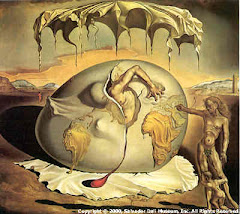Our present, conventional ethical ideas and values are largely incapable of dealing with the kinds of global threats we are facing. Global threats represent moral challenges of a kind that we have not experienced before in human history and they require an innovative ethical response. Indeed, dealing with these threats will require a revaluing of our values, a rethinking and reinventing of our ethical frameworks. I will argue that we need to have a new understanding of some basic assumptions we make about human rights and social responsibilities, and about the nature and scope of the moral community, if we are to develop an ethical framework that will enable us to more effectively address and solve the problems that humanity is facing. In short, I will argue that we need to develop a global ethics. This book explores the possibility of constructing a global ethics based on the concepts of human rights and social responsibilities.
A global ethics can be understood in contrast to conventional ethics. Within our conventional ethical framework most people regard themselves as having certain rights and responsibilities. Conventionally speaking, there are individual rights which persons can claim against other members of their own societies and which their own governments are supposed to enforce and protect. Additionally according to the conventional ethics most people accept, individual competent moral agents also have moral responsibilities to take care of themselves, to care for their families and loved ones, and to respect the civil rights of their co-nationals. But one’s moral responsibilities are generally thought to stop at national borders. On the conventional moral view, worrying about protecting the rights and well-being of people in other countries is their job, not ours.
Moreover, under conventional ethics we do not really have any serious moral responsibilities towards non-human life forms, e.g., animals, insects, plants, microorganisms, and to the complex ecosystems that support them. The non-human parts of the biological world are just not considered to be proper objects of moral concern and do not have any more moral standing than mere things.
Finally, under our conventional moral outlook, most people think we have significant moral responsibilities to care for our own children while they are young, and see to it that they grow up to become competent and responsible adults. Perhaps we also acknowledge a moral duty to ensure that our children and grandchildren will enjoy at least as good lives as we have had. But few people think that our moral responsibilities extend much further than the next one or two generations.
These ethical assumptions are, I believe, no longer viable in the global age we have now entered -- the Anthropocene Era.





No comments:
Post a Comment